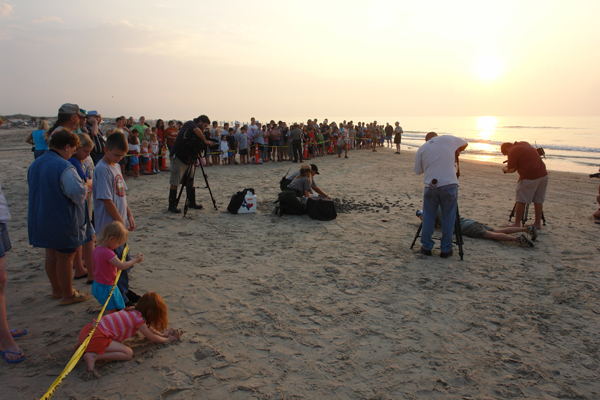- La Feria Community Holds Succesful Business Mixer Event
- Little Nashville to Take Place in Downtown Mercedes
- Lions Basketball Captures District Gold
- La Feria ISD Students Compete in Regional Chess Tournament
- Lions End First Half of 32-4A on a High Note
- La Feria ISD Held Another Successful Parent Conference
- Strong Appearance for Lions at Hidalgo Power Meet
- LFECHS Students Get to Meet Local Actress
- Students Participate in Marine Biology Camp
- Two LFECHS Students Qualify for All-State Band
Protecting the Environment: An Economic Necessity in Texas
- Updated: August 16, 2013
Nearly 8-Million Wildlife Tourists Each Year
by John Michaelson
AUSTIN, Texas – Industries such as commercial fishing, shipping, and gas and oil often come to mind when thinking about the Texas Gulf Coast – but an even larger economic engine for the region is tourism.
A new analysis finds that people who come to Texas to hunt, fish, hike and camp support thousands of businesses and jobs. These wildlife visitors also generate $800 million dollars in tax revenue for the state each year, according to Janice Bezanson, executive director of the Texas Conservation Alliance.

A crowd gathered to watch the release of baby sea turtles at Padre Island National Seashore. Photo: National Park Service/TNS
“The basis of that tourism is the exceptional outdoors of the Texas Gulf Coast,” she said, “so taking care of the natural environment isn’t just a nice thing to do, it’s an economic necessity.”
In counties along the Texas Gulf Coast, Bezanson said, from one-fourth to one-third of all jobs are tourism-related. For the Gulf region as a whole, the report cites more than 25,000 tourism-related businesses and a half-million associated jobs.
With the economic importance of the natural landscapes, rivers and streams, Bezanson said they must be a priority as plans are put in place for allocating restoration funds from the BP oil spill disaster in 2010.
“It’s really important that these dollars go to restoring the natural water and land ecosystems along the coast,” she said, “There was a tremendous amount of damage done, and this is our opportunity to correct some of that, and get the Texas Gulf Coast back in a really healthy state.”
The Restore Act was passed last year to ensure that at least 80 percent of the fines collected from BP will go to restoration. The Deepwater Horizon disaster sent more than 4 million barrels of oil into the Gulf of Mexico, making it the largest environmental disaster in U.S. history.
More information is online at edf.org.


